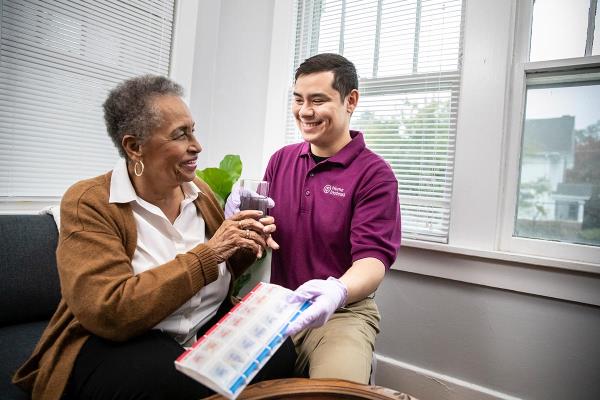How to Convince Your Parents to Accept Home Care Help: 10 Strategies Backed by Research
Taking care of aging parents can be a daunting task, especially when they are resistive to accepting help. Home care services can provide seniors with the support and assistance they need while enabling them to maintain their independence and dignity. In this article, we’ll explore 10 strategies backed by research to help you convince your parents to accept home care help.
- Start the Conversation Early and Be Empathetic
Starting the conversation early can allow for open dialogue and avoid potential crisis situations. Approach the conversation with empathy and understanding to help alleviate fears and concerns. Listen to your parents’ concerns and address them thoughtfully. - Address Their Concerns and Fears
Reassure your parents that home care can provide the support they need while allowing them to maintain their independence and dignity. This may include fears around losing independence, privacy, and the cost of home care. - Highlight the Benefits of Home Care
Home care services can improve seniors’ safety, independence, and overall health outcomes. Older adults who receive home care have fewer hospitalizations and better overall health outcomes. Studies have shown that seniors who receive home care are also less likely to experience falls and injuries. - Involve them in the decision making process
Encourage your loved ones to be a part of the decision-making process. This can help them feel empowered and in control of their care. Research different home care providers and present them with options that fit their needs. - Choose a Reputable and Trustworthy Home Care Provider
Research home care providers and choose a reputable and trustworthy provider. Look for providers with positive reviews and high satisfaction rates from clients. Reputable providers should be licensed and bonded, and their staff should be properly trained and background checked. - Home Care Helps Maintain Quality of Life
Help your loved ones understand that accepting home care is not a sign of weakness, but rather a way to maintain their independence and quality of life. Home care can provide a sense of security and peace of mind for both seniors and their loved ones. - Share Personal Stories of Others
Sharing stories of individuals who have successfully transitioned to home care can help alleviate fears and concerns. Did you know that 9 out of 10 seniors prefer to receive care in their own homes? By sharing success stories, you can help your loved ones see the benefits of home care. - Utilize a Trial Period
Most home care companies offer a trial period to allow your loved ones to get comfortable with their new care routine. Let your loved one know that they are not locked into a long-term contract and that they can trial this out to ensure it is the right fit for them. - Provide Ongoing Support and Reassurance
Be available to offer ongoing support and reassurance as your loved ones adjust to their new routine. This can include checking in with them regularly and providing feedback to their care providers. - Celebrate Their Successes and Milestones
Celebrating small successes along the way can help your loved ones feel accomplished and motivated. Seniors who receive home care are more likely to report a higher quality of life and improved mental health.
In conclusion, helping your resistive parents to accept home care may require some patience and understanding, but it’s worth the effort to ensure their safety and wellbeing. If you get to the point where your parents are willing to accept and need to find a reputable and trustworthy home care provider, look no further. Call Home Instead at (905) 604 4223 to setup a free consultation today.



